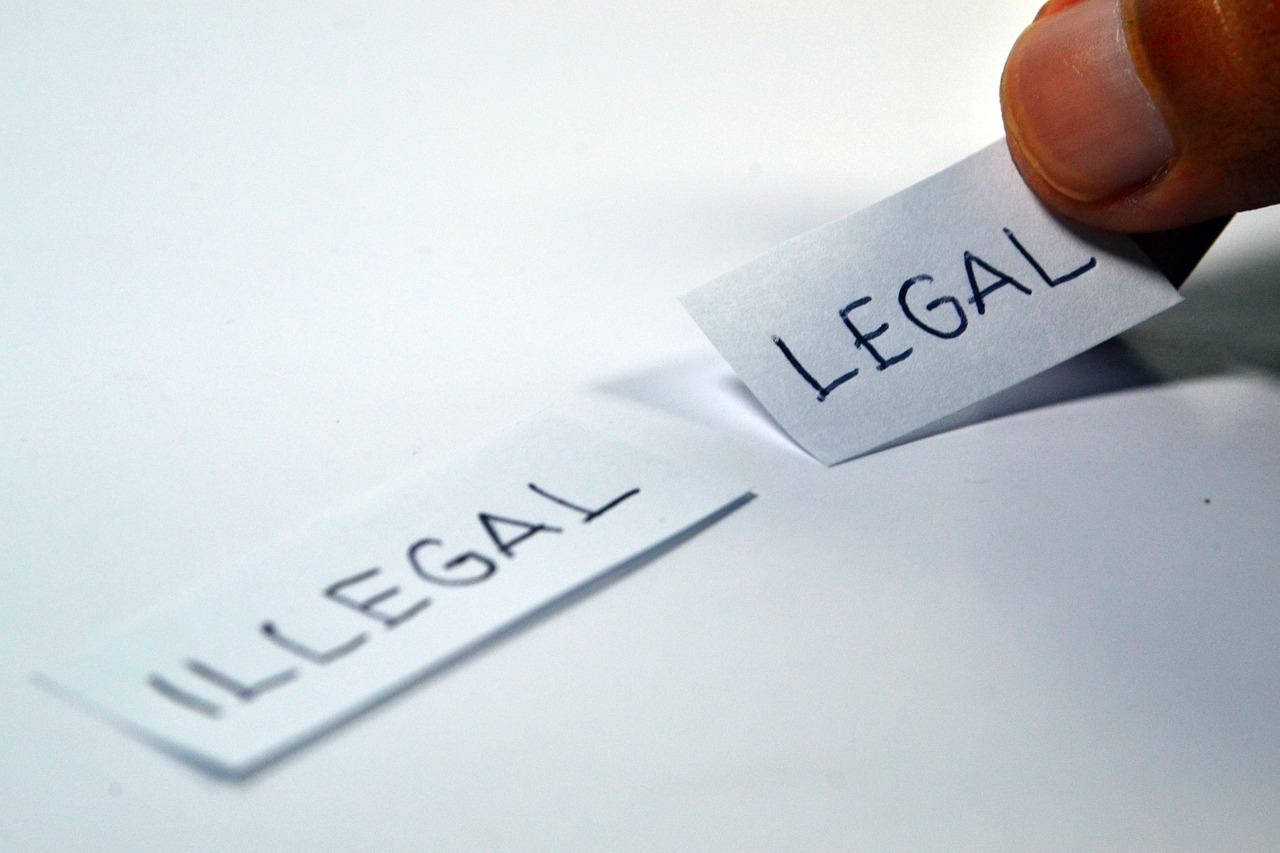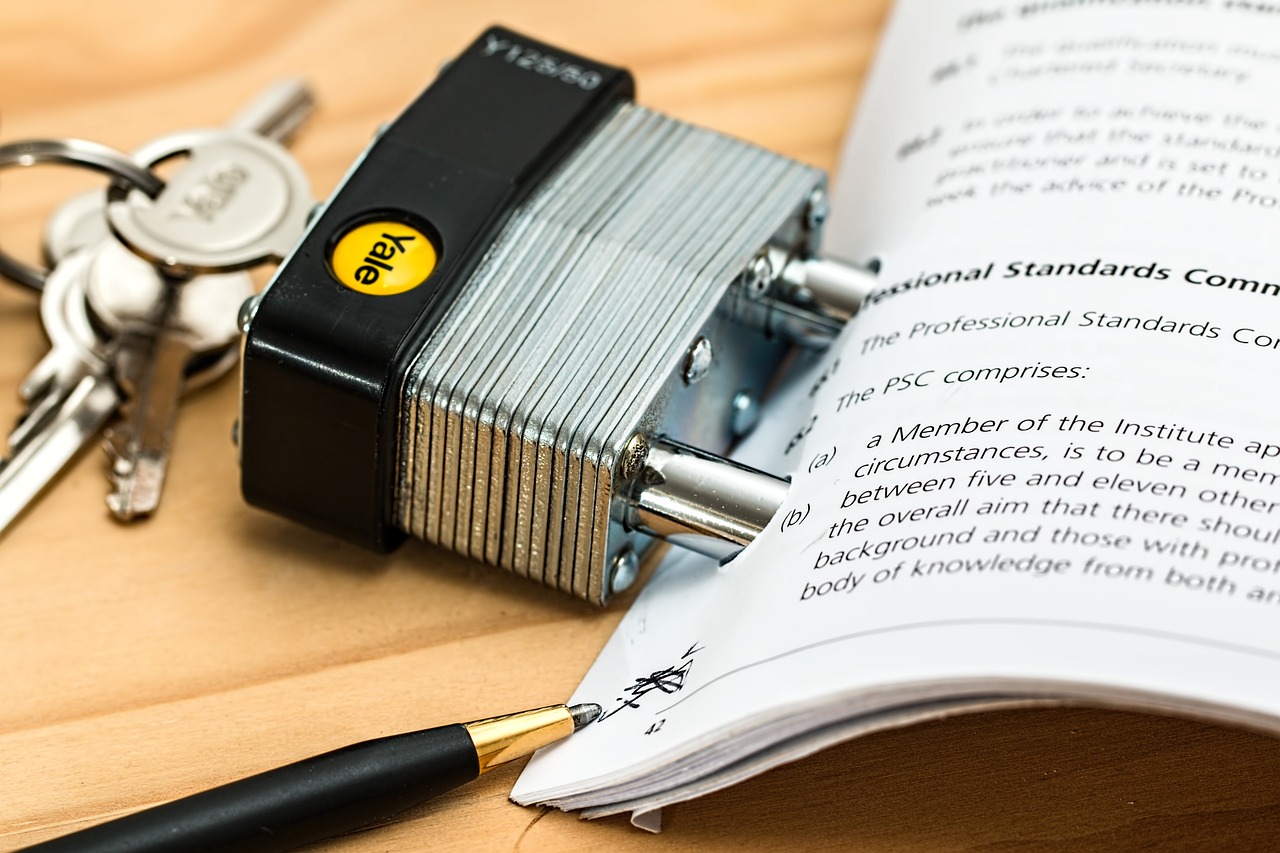Utah’s consumer fraud laws are a crucial aspect of legal protection for residents and businesses alike. With the increasing prevalence of fraudulent activities in the market, it is essential to understand these laws to safeguard your personal and business interests. This article aims to demystify Utah’s consumer fraud laws, providing you with comprehensive knowledge to make informed decisions, protect your rights, and take appropriate legal actions, if necessary. By delving into the intricacies of these laws, you will gain the necessary understanding to navigate the complexities of consumer fraud cases and, ultimately, make the right choice in seeking legal representation.

1. Overview of Consumer Fraud Laws in Utah
1.1 Definition of Consumer Fraud
Consumer fraud refers to any deceptive or unfair business practice targeted at consumers in the state of Utah. It involves false representation, omission of important information, or any other act that misleads consumers and causes them financial harm.
1.2 Purpose of Consumer Fraud Laws
The aim of consumer fraud laws in Utah is to protect consumers from fraudulent practices and ensure fair and honest business transactions. These laws promote transparency, accountability, and ethical conduct among businesses, thereby fostering consumer trust and confidence in the marketplace.
1.3 Types of Consumer Fraud
Consumer fraud can take various forms, including false advertising, pyramid schemes, Ponzi schemes, unsolicited goods and services, and price gouging. These deceptive practices can lead to financial losses, reputational damage, and emotional distress for consumers.
1.4 Consumer Fraud Statutes in Utah
Utah has specific statutes that address consumer fraud. The primary statute is the Utah Consumer Sales Practices Act (UCSPA), which prohibits deceptive trade practices and provides remedies for consumer fraud victims. Additionally, the Utah Uniform Securities Act and the Utah Business Opportunity Disclosure Act address fraud in the securities and business opportunity sectors.
2. Elements and Proof of Consumer Fraud
2.1 Intent and Knowledge
To establish a consumer fraud claim, you must demonstrate that the alleged perpetrator had the intent to deceive or defraud consumers. It is crucial to prove that the deceptive actions were deliberate and done with full knowledge of their fraudulent nature.
2.2 Misrepresentation or Deception
Consumer fraud cases require proving that the defendant made false statements, concealed material facts, or engaged in other deceptive practices. Misrepresentations can be verbal, written, or implied, and they must be material in nature, meaning they affected the consumer’s decision-making process.
2.3 Reliance on the Misrepresentation
A crucial element in consumer fraud cases is establishing that the consumer relied on the defendant’s misrepresentation or deception. The consumer must show that they reasonably believed the false information and that their reliance on it led to their financial harm.
2.4 Actual Damages
To succeed in a consumer fraud claim, you must demonstrate that you suffered actual damages as a result of the fraudulent actions. This can include financial losses, loss of property, emotional distress, or any other harm caused by the deceptive practices.
3. Consumer Protection Agencies in Utah
3.1 Utah Division of Consumer Protection
The Utah Division of Consumer Protection is a state agency dedicated to safeguarding consumers from unfair and deceptive business practices. They enforce consumer protection laws, investigate complaints, and take legal action against violators. You can contact them to report consumer fraud or seek assistance with resolving related issues.
3.2 Role of the Attorney General’s Office
The Attorney General’s Office in Utah plays a vital role in consumer protection. They have the authority to prosecute businesses engaged in fraudulent activities and provide legal remedies to defrauded consumers. Their dedicated team of attorneys works tirelessly to ensure compliance with consumer fraud laws.
3.3 Local Consumer Advocacy Organizations
There are several local consumer advocacy organizations in Utah that provide support, resources, and education to consumers. These organizations work to empower consumers, raise awareness about their rights, and help them navigate through consumer fraud issues. By reaching out to these organizations, you can access valuable guidance and assistance.
4. Prohibited Business Practices
4.1 False Advertising
False advertising involves making misleading or deceptive statements about a product or service with the intention to attract consumers. Utah’s consumer fraud laws prohibit the use of false or misleading advertisements, including exaggerated claims, false endorsements, and deceptive pricing practices.
4.2 Pyramid Schemes
Pyramid schemes are fraudulent business models that rely on recruiting participants who pay to join the scheme. The profits of the scheme primarily come from new participants rather than legitimate business activities. Utah’s consumer fraud laws explicitly prohibit pyramid schemes and aim to protect consumers from financial losses associated with such schemes.
4.3 Ponzi Schemes
Ponzi schemes are fraudulent investment schemes in which investors’ returns are paid using funds contributed by subsequent investors rather than through legitimate investment activities. Utah law prohibits Ponzi schemes and imposes severe penalties on individuals or businesses involved in perpetrating such frauds.
4.4 Unsolicited Goods and Services
Utah’s consumer fraud laws protect consumers from receiving unsolicited goods or services and being billed for them. It is illegal for businesses to send products or provide services without the explicit consent of the consumer, and consumers have the right to reject and return such goods or services.
4.5 Price Gouging
Price gouging refers to unfairly and excessively raising prices during times of crisis or emergencies. Utah’s consumer fraud laws prohibit price gouging practices, ensuring that consumers are protected from unreasonable price increases for essential goods and services during times of need.
5. Remedies for Consumer Fraud Victims
5.1 Civil Lawsuits
Consumer fraud victims in Utah have the right to file civil lawsuits against the perpetrators to seek compensation for their losses. Successful plaintiffs may be awarded monetary damages, injunctive relief, and attorney’s fees. It is advisable to consult with an experienced consumer fraud attorney to navigate the legal complexities and maximize the chances of a favorable outcome.
5.2 Class Action Lawsuits
In cases where numerous consumers have suffered financial harm due to the same fraudulent practices, a class action lawsuit may be appropriate. Class actions consolidate the claims of multiple victims, providing them with a collective legal strategy and enhancing their chances of recovering damages.
5.3 Criminal Prosecution
In addition to civil remedies, consumer fraud offenders can face criminal prosecution in Utah. If the fraudulent activities violate criminal statutes, the perpetrators may be subject to fines, imprisonment, or other penalties. Reporting consumer fraud to law enforcement agencies or the Attorney General’s Office is essential for initiating criminal proceedings.
5.4 Consumer Complaints
Victims of consumer fraud can file complaints with the appropriate agencies, such as the Utah Division of Consumer Protection or the Attorney General’s Office. These agencies conduct investigations, mediate disputes, and take legal action against fraudulent businesses. Filing a complaint can help raise awareness of fraudulent practices and protect other consumers.
5.5 Seeking Restitution and Damages
To seek restitution and damages as a consumer fraud victim, it is important to gather evidence of the fraudulent activities, such as documentation, receipts, correspondence, and witness statements. Working with a skilled consumer fraud attorney can significantly increase the likelihood of recovering your losses and obtaining the compensation you deserve.
6. Defenses Against Consumer Fraud Claims
6.1 Lack of Intent
One defense against consumer fraud claims is establishing that the defendant lacked the intent to deceive or defraud consumers. This defense requires demonstrating that any misrepresentation or deceptive act was unintentional or resulted from a genuine mistake.
6.2 Failure to Prove Misrepresentation
If the plaintiff fails to provide sufficient evidence of misrepresentation or deception, the defendant may argue that the essential element of fraudulent conduct has not been met. This defense challenges the plaintiff’s ability to prove that the defendant made false statements or engaged in deceptive practices.
6.3 Lack of Reliance
A defense often raised in consumer fraud cases is that the consumer did not reasonably rely on the alleged misrepresentation or deception. If the defendant can establish that the consumer’s decision was based on other factors or that they were aware of the misleading nature of the information, the defense of lack of reliance may be successful.
6.4 Statute of Limitations
Utah has a statute of limitations that sets a timeframe within which a consumer fraud lawsuit must be filed. If the plaintiff fails to initiate legal proceedings within the specified time limit, the defendant may assert the defense of statute of limitations, potentially resulting in the dismissal of the claim.

7. Legal Remedies Available for Businesses
7.1 Defending Against False Accusations
Businesses facing false accusations of consumer fraud can seek legal representation to defend their interests. It is crucial to gather evidence, documents, and witness statements to support the defense. An experienced business law attorney can help build a strong defense strategy and navigate complex legal proceedings.
7.2 Seeking Damages for Defamation
If a business suffers reputational harm as a result of false or defamatory statements made by consumers or competitors, they may have a valid claim for defamation. Seeking damages for defamation can enable businesses to recover their losses and restore their reputation.
7.3 Challenging Regulatory Actions
In cases where regulatory agencies impose sanctions or penalties on businesses based on allegations of consumer fraud, legal action can be taken to challenge these regulatory actions. Businesses can engage an attorney who specializes in administrative law to represent them and navigate the administrative appeals process.
8. Penalties for Consumer Fraud Violations
8.1 Civil Penalties
Businesses found liable for consumer fraud violations in Utah may be subject to civil penalties. These penalties can include monetary fines, restitution orders, and injunctive relief. The severity of the penalties depends on the nature and scale of the fraudulent conduct.
8.2 Criminal Penalties
In cases involving egregious consumer fraud, criminal penalties can be imposed. Convicted individuals or businesses may face significant fines, imprisonment, or both, as determined by the court. The criminal justice system aims to deter fraudulent activities and punish offenders accordingly.
8.3 Revocation of Licenses
Professional licenses, permits, or certifications may be at risk of revocation if the holder is found guilty of consumer fraud. Regulating entities in Utah have the authority to take disciplinary action against licensed individuals or businesses involved in fraudulent practices to ensure public safety and consumer protection.
8.4 Administrative Fines
Regulatory agencies in Utah can impose administrative fines on businesses for violating consumer fraud laws. These fines serve as penalties for non-compliance and are meant to enforce adherence to fair business practices. Businesses may be required to pay significant financial penalties based on the severity of the violation.

9. Recent Consumer Fraud Cases in Utah
9.1 Case Study 1: [Name of Case]
In this case, a local contractor in Utah was found guilty of consumer fraud after charging excessive fees for subpar home renovations. The victims successfully filed a class action lawsuit, resulting in substantial financial compensation and the contractor’s license being revoked.
9.2 Case Study 2: [Name of Case]
A Utah-based nutritional supplement company was involved in a deceptive marketing scheme, making false claims about the health benefits of their products. The Attorney General’s Office intervened, and the company faced significant civil penalties, including restitution to affected consumers.
9.3 Case Study 3: [Name of Case]
In this case, a fraudulent investment company in Utah promised high returns on investments with little risk. The scheme unraveled, and the individuals behind it were prosecuted criminally, resulting in substantial fines and lengthy prison sentences.
Frequently Asked Questions (FAQs)
1. What is the time limit for filing a consumer fraud lawsuit in Utah?
In Utah, the statute of limitations for consumer fraud lawsuits is generally four years from the date the fraud was discovered or reasonably should have been discovered.
2. Can I file a consumer fraud lawsuit if I never purchased anything from the fraudulent business?
Yes, you may still have a valid claim for consumer fraud if you were harmed or suffered losses directly due to the fraudulent practices of a business, even if you did not make a purchase.
3. How can I report consumer fraud in Utah?
You can report consumer fraud in Utah by contacting the Utah Division of Consumer Protection, the Attorney General’s Office, or filing a complaint online through their respective websites.
4. Can I seek punitive damages in a consumer fraud case?
It is possible to seek punitive damages in a consumer fraud case if the defendant’s conduct was willful or malicious. Punitive damages aim to punish the offender and deter similar fraudulent practices in the future.
5. What should I do if I suspect I have been a victim of consumer fraud?
If you suspect you have been a victim of consumer fraud in Utah, it is important to gather and preserve any evidence related to the fraudulent conduct. Contacting an experienced consumer fraud attorney is crucial for understanding your legal rights, exploring available remedies, and taking appropriate legal action.